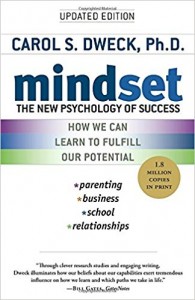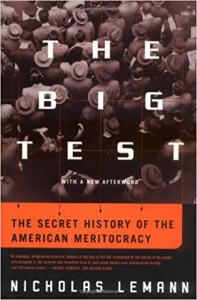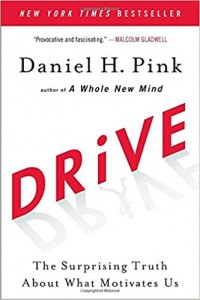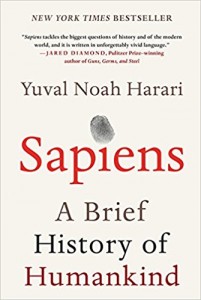5 Books Any Future Grad Student Should Read
Reading is one of the most powerful tools a student has in his or her study arsenal. It has been widely proven that regular reading improves one’s mental stimulation, memory, vocabulary, and analytical thinking skills, all while reducing stress and providing an opportunity to focus. For that reason, many of our Kaplan instructors encourage their students to relax and read a good book to supplement their test prep studies. To take it one step further, students can turn to books relevant to their future fields. We asked our grad school experts and GRE faculty what books they recommend to future grad students. Here’s what they had to say.
1. Mindset: The New Psychology of Success
“Growth Mindset by Carol Dweck is one of the two books that changed my life more than any others. (The other is Abundance by Peter H. Diamandis.) It’s easy to fall into emphasizing the negative in the world; it’s what our brains are designed to do. Taking the time to actively focus on how I and the world I live in can and will change and grow for the better completely turned around my outlook and allowed me to focus on making a positive impact in a way I’d never been able to before.”
– Walker Williams, Academic Director
Amazon’s Description
After decades of research, world-renowned Stanford University psychologist Carol S. Dweck, Ph.D., discovered a simple but groundbreaking idea: the power of mindset. In this brilliant book, she shows how success in school, work, sports, the arts, and almost every area of human endeavor can be dramatically influenced by how we think about our talents and abilities. People with a fixed mindset—those who believe that abilities are fixed—are less likely to flourish than those with a growth mindset—those who believe that abilities can be developed. Mindset reveals how great parents, teachers, managers, and athletes can put this idea to use to foster outstanding accomplishment.
In this edition, Dweck offers new insights into her now famous and broadly embraced concept. She introduces a phenomenon she calls false growth mindset and guides people toward adopting a deeper, truer growth mindset. She also expands the mindset concept beyond the individual, applying it to the cultures of groups and organizations. With the right mindset, you can motivate those you lead, teach, and love—to transform their lives and your own.
2. The Big Test: The Secret History of the American Meritocracy
“Have you ever wondered what created our world of never-ending exams? Why the course of your education and life is determined by the ACT, SAT, GRE and all those other tests? The history behind this saga is ripe with power, politics and intrigue; and it is all true. The Big Test is a compelling history that reads like a novel and provides moment after enlightening moment.”
– Steve Cross, Vice President – Grad and Pre-College Field
Amazon’s Description
What do we know about the history, origin, design, and purpose of the SAT? Who invented it, and why? How did it acquire such a prominent and lasting position in American education? The Big Test reveals the ideas, people, and politics behind a fifty-year-old utopian social experiment that changed this country. Combining vibrant storytelling, vivid portraiture, and thematic analysis, Lemann shows why this experiment did not turn out as planned. It did create a new elite, but it also generated conflict and tension―and America’s best educated, most privileged people are now leaders without followers.
Drawing on unprecedented access to the Educational Testing Service’s archives, Lemann maintains that America’s meritocracy is neither natural nor inevitable, and that it does not apportion opportunity equally or fairly. His important study not only asks profound moral and political questions about the past and future of our society but also carries implications for current social and educational policy. As Brent Staples noted in his New York Times editorial column: “Mount Holyoke College in Massachusetts announced that prospective students would no longer be required to submit SAT scores with their applications. . . . Holyoke’s president, Joanne Creighton, was personally convinced by reading Nicholas Lemann’s book, The Big Test, which documents how the SAT became a tool for class segregation.”
All students of education, sociology, and recent U.S. history―especially those focused on testing, theories of learning, social stratification, or policymaking―will find this book fascinating and alarming.
3. Drive: The Surprising Truth About What Motivates Us
“I’d recommend Drive: The Surprising Truth About What Motivates Us by Daniel Pink to anyone who wants to be a leader or manager, or just anyone who wants to better understand her fellow humans!”
– Katie Dewey, Executive Director, Academic Management
Amazon’s Description
Most people believe that the best way to motivate is with rewards like money–the carrot-and-stick approach. That’s a mistake, says Daniel H. Pink in Drive. In this provocative and persuasive new book, he asserts that the secret to high performance and satisfaction–at work, at school, and at home–is the deeply human need to direct our own lives, to learn and create new things, and to do better by ourselves and our world.
Drawing on four decades of scientific research on human motivation, Pink exposes the mismatch between what science knows and what business does-and how that affects every aspect of life. He examines the three elements of true motivation–autonomy, mastery, and purpose–and offers smart and surprising techniques for putting these into action in a unique book that will change how we think and transform how we live.
4. A Series of Unfortunate Events
“A Series of Unfortunate Events by Lemony Snicket is a expeditious series to read for adults, which has a lot of value when a student is trying to accumulate vocabulary. The elder two children have vocabularies that are far beyond the usage of most adults. The youths expound the meaning of each word while utilizing the word in the narrative. This is an amusing way to face the calamitous task of acquiring expanded terminology to advance a GRE score.”
– Tami Miller, GRE Teacher
From the Author’s Website
Violet, Klaus, and Sunny Baudelaire are intelligent children. They are charming, and resourceful, and have pleasant facial features. Unfortunately, they are exceptionally unlucky.
In the first two books alone, the three youngsters encounter a greedy and repulsive villain, itchy clothing, a disastrous fire, a plot to steal their fortune, a lumpy bed, a deadly serpent, a large brass reading lamp, a long knife, and a terrible odor.
In the tradition of great storytellers, from Dickens to Dahl, comes an exquisitely dark comedy that is both literary and irreverent, hilarious and deftly crafted. Never before has a tale of three likeable and unfortunate children been quite so enchanting, or quite so uproariously unhappy.
5. Sapiens: A Brief History of Humankind
“Sapiens: A Brief History of Humankind by Noah Yuval Harari. It provides a really informative and entertaining narrative about human history and human nature. I think any prospective Grad student could learn quite a bit from it. It has certainly helped to inform my opinions about pretty much everything!”
– Katie Dewey, Executive Director, Academic Management
Amazon’s Description
From a renowned historian comes a groundbreaking narrative of humanity’s creation and evolution—a #1 international bestseller—that explores the ways in which biology and history have defined us and enhanced our understanding of what it means to be “human.”
One hundred thousand years ago, at least six different species of humans inhabited Earth. Yet today there is only one—homo sapiens. What happened to the others? And what may happen to us?
Most books about the history of humanity pursue either a historical or a biological approach, but Dr. Yuval Noah Harari breaks the mold with this highly original book that begins about 70,000 years ago with the appearance of modern cognition. From examining the role evolving humans have played in the global ecosystem to charting the rise of empires, Sapiens integrates history and science to reconsider accepted narratives, connect past developments with contemporary concerns, and examine specific events within the context of larger ideas.
Dr. Harari also compels us to look ahead, because over the last few decades humans have begun to bend laws of natural selection that have governed life for the past four billion years. We are acquiring the ability to design not only the world around us, but also ourselves. Where is this leading us, and what do we want to become?
Featuring 27 photographs, 6 maps, and 25 illustrations/diagrams, this provocative and insightful work is sure to spark debate and is essential reading for aficionados of Jared Diamond, James Gleick, Matt Ridley, Robert Wright, and Sharon Moalem.





